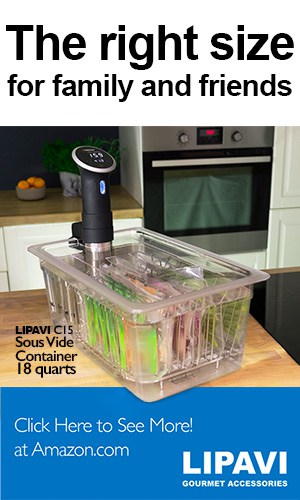-
Sous Vide Time and Temperatures
Sous Vide Time and Temps
Sous Vide Time and Temps
Sous Vide Temps
- All Sous Vide Temperatures
- Sous Vide Beef Temperatures
- Sous Vide Chicken Temperatures
- Sous Vide Duck Temperatures
- Sous Vide Fish Temperatures
- Sous Vide Vegetables Temperatures
- Sous Vide Infusions Temperatures
- Sous Vide Lamb Temperatures
- Sous Vide Pork Temperatures
- Sous Vide Shellfish Temperatures
- Sous Vide Turkey Temperatures
- Recipes Recipes Recipes Recipes
- Getting Started Guides Getting Started Guides Getting Started
- Equipment and Tools Equipment and Tools Equipment Equipment and Tools
- More Resources More Resources Resources More Resources
View All Molecular Gastronomy Glossary
In its simplest terms, hydration is the process of supplying or adding water to form a hydrate. Technically speaking, hydration is the process of forming a solution through the interaction of solvents with molecules of solutes. Water added to an element that forms a compound is known as a hydrate. The process works by adding hydrogen ions to other molecules. This process aims to add moisture or create a fluid balance.
Various liquids may be used as a solvent, however water is the most common liquid employed. Hydration is a common process for many culinary dishes. A number of cooking ingredients are hydrocolloids which need water to take effect. Examples of such ingredients include starches and gels. Many of these are either dissolved or mixed with water before it is employed as a stabilizer, thickener and others.
Hydration
What is Hydration?
Many of the ingredients used in molecular gastronomy need to be hydrated before they will work. Hydration is simply the process of adding water to the ingredient. Just as when you add flour to water to make a gravy you often need to bring the liquid to a specific temperature to ensure the ingredient will work properly.In its simplest terms, hydration is the process of supplying or adding water to form a hydrate. Technically speaking, hydration is the process of forming a solution through the interaction of solvents with molecules of solutes. Water added to an element that forms a compound is known as a hydrate. The process works by adding hydrogen ions to other molecules. This process aims to add moisture or create a fluid balance.
Various liquids may be used as a solvent, however water is the most common liquid employed. Hydration is a common process for many culinary dishes. A number of cooking ingredients are hydrocolloids which need water to take effect. Examples of such ingredients include starches and gels. Many of these are either dissolved or mixed with water before it is employed as a stabilizer, thickener and others.













